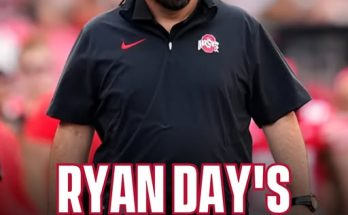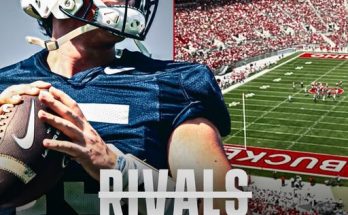When legends wear blue, they wear Duke. The Duke Blue Devils have long been synonymous with excellence, not just in college basketball, but in the very fabric of the sport’s history. Over decades, this program has built a legacy steeped in triumph, clutch performances, and iconic personalities who have become household names. From buzzer-beaters that shattered dreams to dominant performances that carved out dynasties, the Blue Devils have produced some of the greatest players the game has ever seen.
Duke basketball isn’t just about winning games; it’s about defining greatness on and off the court. Today, we dive deep into the top five Blue Devils whose impact transcended college hoops and helped shape the identity of Duke basketball forever. This is a tribute to the legends who wore blue and defined what it means to be truly great.
1. Christian Laettner: The Ultimate Duke Legend
If there is one name that encapsulates Duke basketball greatness, it’s Christian Laettner. His name conjures memories of clutch moments, unmatched skill, and leadership that led Duke to the pinnacle of college basketball. Laettner’s legacy is forever cemented by “The Shot” — his iconic buzzer-beater over Kentucky in the 1992 East Regional Final, a play replayed endlessly in college basketball lore.
Laettner’s journey at Duke was one of consistency and dominance. He was a four-year starter (one of only a few in NCAA history), a two-time NCAA champion (1991, 1992), and a consensus first-team All-American. His combination of size, shooting touch, and basketball IQ made him nearly unstoppable inside and out.
But beyond his physical talents, Laettner embodied the competitive fire and clutch resolve that defines a true Blue Devil. His ability to elevate his game in pressure moments made him a symbol of Duke basketball’s never-say-die attitude. By the time he graduated, Laettner had set numerous school records, including points scored and rebounds, many of which still stand today.
Why he’s #1: Laettner’s career was not just about personal stats or accolades — it was about defining Duke’s modern era. His role in back-to-back championships and those unforgettable late-game heroics make him the quintessential Blue Devil who defined greatness in college basketball.
2. Grant Hill: The Athletic Phenomenon and Duke’s Renaissance Man
Before the NBA made Grant Hill a household name, he was already a star in Durham. Hill’s tenure at Duke from 1990 to 1994 marked the resurgence of Duke basketball into a national powerhouse. Hill’s blend of size, speed, skill, and versatility made him one of the most exciting players to watch in college basketball.
Hill was a two-time NCAA champion (1991, 1992) alongside Laettner and earned numerous individual accolades, including two NCAA Final Four Most Outstanding Player awards. His graceful playing style combined with relentless competitiveness embodied the Duke ethos — classy, effective, and team-oriented.
What set Hill apart was his ability to impact the game in multiple ways: scoring, rebounding, passing, and defending. He was a leader on a team loaded with talent, and his presence elevated Duke’s profile nationally, helping cement the program’s elite status in the ‘90s.
Why he’s #2: Grant Hill was the prototype of the complete player, and his leadership during Duke’s early ‘90s dominance helped define an era. His legacy paved the way for future Blue Devils who combined skill and professionalism.
3. J.J. Redick: The Sharpshooter Who Changed the Game
In the 2000s, Duke needed a new kind of hero — a sharpshooter with ice in his veins who could redefine the perimeter game. Enter J.J. Redick. Known for his pinpoint accuracy and work ethic, Redick became one of college basketball’s most feared marksmen.
From 2002 to 2006, Redick shattered Duke’s and ACC’s three-point records while leading the Blue Devils to the 2004 NCAA Championship game and multiple deep tournament runs. He was the ACC Player of the Year twice and a consensus first-team All-American.
Redick’s greatness wasn’t just in his shooting but in his discipline, preparation, and basketball IQ. His methodical approach to the game made him a coach’s dream and a nightmare for opposing defenses. Redick’s clutch shooting in pressure moments — especially in tournament play — turned Duke into an offensive powerhouse that dominated from beyond the arc.
Why he’s #3: J.J. Redick redefined Duke basketball in the 21st century with his sharpshooting and professionalism. His records and leadership made him an icon who helped Duke remain a perennial national title contender.
4. Zion Williamson: The Modern-Day Marvel
Few players have electrified college basketball like Zion Williamson did during his single season at Duke in 2018-19. Zion’s arrival brought unprecedented hype, thanks to his rare blend of size, athleticism, and explosiveness. His highlight-reel dunks and powerful drives made him a global sensation overnight.
Though his college career was brief, Zion’s impact was seismic. He led Duke to the Elite Eight, was a consensus first-team All-American, and dominated on both ends of the floor. His combination of strength and agility was unparalleled, and his charisma and infectious energy made him a fan favorite instantly.
Zion embodied the future of Duke basketball — dynamic, athletic, and impossible to ignore. He inspired a new generation of fans and players alike, proving Duke’s ability to attract transcendent talent even in the modern era.
Why he’s #4: Zion’s impact in one season was monumental. He brought Duke basketball to the forefront of national conversation with his unique skill set and electrifying playstyle, defining greatness for a new era.
5. Bobby Hurley: The Fearless Floor General
Before Laettner, Hill, Redick, or Zion, there was Bobby Hurley — the ultimate leader and point guard who laid the groundwork for Duke’s sustained excellence. Hurley’s college career from 1989 to 1993 was highlighted by his unmatched court vision, leadership, and clutch performances.
Hurley led Duke to back-to-back NCAA championships in 1991 and 1992 alongside Christian Laettner. He still holds the NCAA record for career assists, a testament to his selflessness and playmaking brilliance. Hurley’s ability to control the tempo and make plays under pressure was integral to Duke’s success in the early ‘90s.
His courage was perhaps best exemplified by his fearless drives to the basket and willingness to shoulder responsibility in critical moments. Hurley was a true floor general who set the standard for Blue Devil guards who followed.
Why he’s #5: Bobby Hurley’s leadership and playmaking were foundational to Duke’s rise to dominance in the early ‘90s. His records and style of play defined the role of a Duke point guard for generations.
Honorable Mentions
While these five legends top the list, Duke basketball history is brimming with greatness beyond them. Names like Shane Battier — whose defensive brilliance and clutch shooting won a national title — and Kyrie Irving — the dazzling playmaker who lit up Cameron Indoor Stadium — deserve special recognition. Each contributed to Duke’s storied legacy and helped define what it means to be a Blue Devil.
The Duke Legacy: More Than Just Numbers
What ties these five players together isn’t just championships or stats — it’s the way they wore the Duke jersey with pride and helped forge a legacy of excellence, determination, and greatness. They carried the torch through different eras, adapting to the changing game while maintaining the core values of Duke basketball.
From buzzer-beaters that broke hearts to record-breaking performances, the Blue Devils have been a beacon of college basketball greatness. They inspire not only fans but future generations who dream of wearing the blue and white and leaving their own mark on the hardwood.
Duke basketball isn’t just about winning — it’s about defining greatness, and these five legends personify that ideal. When legends wear blue, they don’t just play the game — they change it.



